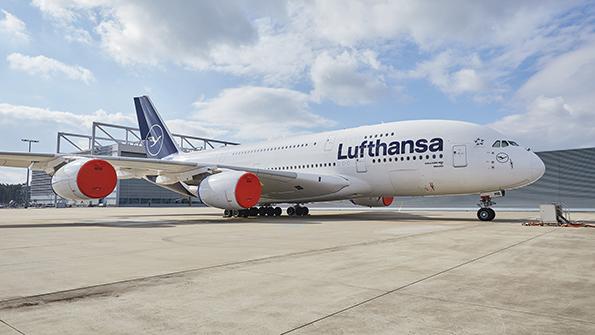
Late last year, just before the holiday break, German pilot union Vereinigung Cockpit and Lufthansa Group had some news to share. The pilots agreed to forgo planned salary raises and to extend by one year the short-time work scheme that is largely funded by the federal government and that aims to keep people employed across the economy. With their employer set to post a net loss of billions of euros in 2020, the pilots will not receive any profit-sharing or overtime payments. In return, Lufthansa agreed to avoid forced redundancies among pilots until the spring of 2022 despite its own projections that it will need only around 3,900 of its 5,000 pilots for years to come.
What the two sides agree on is, therefore, hardly a breakthrough but more like barely muddling through in hopes that better times return soon. The plan demonstrates how difficult it will be for legacy airlines—accustomed to focusing on premium traffic and high yields and absorbing high cost structures—to adjust to a new aviation market post-COVID-19. Inside the organizations, there is an enormous resistance to change, and the challenge is compounded by government decisions to step in and rescue “their” airlines.
To recap, without the German government’s €9 billion ($11 billion) in financial support to Lufthansa last June, the airline would have filed for bankruptcy. Thousands more jobs, among them many of pilots, quickly would have been lost. But now that the immediate threat of failure has dissipated and the arrival of COVID-19 vaccines makes a path to recovery palpable, the sense of urgency has diminished. Unions want to reach the status quo ante as soon as possible whereas management argues the market has changed so fundamentally that structural and permanent cost savings are unavoidable.
Forecasts differ on when the market will recover to something resembling old levels of volume. Some executives hope for a rapid recovery to normalcy by 2022 or 2023; others believe the process will take much longer. But nearly everyone agrees that private travel will return faster than business traffic, therefore favoring carriers that had tailored their offerings toward the leisure market before the crisis. The shift toward a relative strengthening of leisure travel has been clearly visible for years. Airlines that have not adapted fast enough are now under particular pressure to catch up.
But how? Lufthansa decided to change its strategy. In the past, targeting leisure travel and leisure destinations fell largely to its subsidiary Eurowings, which was built up to become a second large pillar beside Lufthansa itself. Despite having grown to a fleet of nearly 200 aircraft pre-pandemic, Eurowings nevertheless became a financial fiasco—but that is another story. In the new strategy, the entire group will shift its focus to the leisure market: Lufthansa itself will fly to more and more nonbusiness destinations, and “Ocean” will become its new long-haul leisure carrier.
Following the crisis, it should be relatively easy to create a new network that includes more of these destinations and to adapt pricing and marketing accordingly. But if Eurowings with its lower costs was unable to profit from its European network (let alone from its disastrous long-haul business), how can high-cost Lufthansa expect to make the transition work economically?
For it to be successful, Lufthansa must make drastic cuts. Admittedly, some of this is happening. A brutal restructuring and streamlining effort is shattering the Frankfurt headquarters, where some departments face cost-cutting targets of about 40%. Fully achieving this plan is doubtful, though Lufthansa will likely survive the current crisis, especially with more government support.
Attesting to the seriousness of Lufthansa’s intentions is its termination of a prorate agreement with leisure carrier Condor that allowed the latter to use Lufthansa’s network to feed its Frankfurt-originating long-haul flights. That decision is threatening the viability of Condor, but Lufthansa argues that it cannot continue to strengthen a competitor.
Lufthansa considered repurchasing Condor but never actually did. The airline just left administration and needs an investor sooner or later. The conditions of Lufthansa’s own government bailout do not allow acquisitions for now, and management argues that competition authorities would prevent such a move. On the other hand, acquiring Condor would be a much quicker, less painful way to access the leisure market. The legacy part of the group, however, would have to continue focusing on business and premium leisure travel and therefore remain smaller for longer. Management is not ready to make that call yet, and the union still hopes everything will go back to normal soon.
